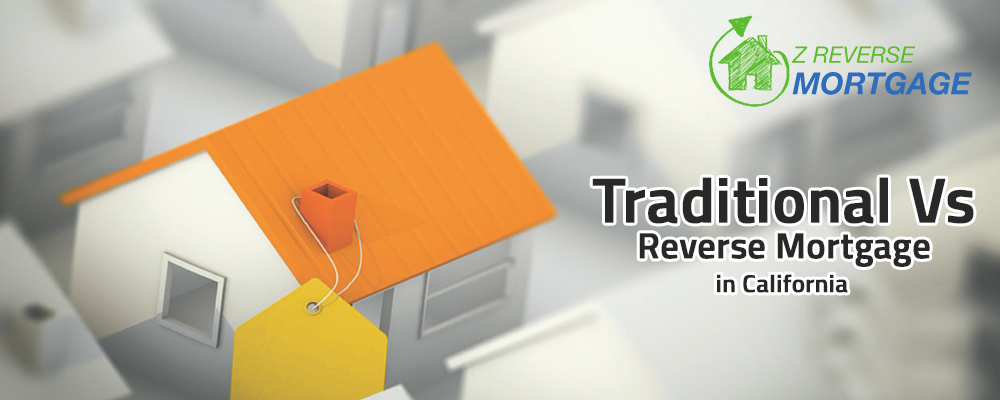Traditional Vs Reverse Mortgage in California
We all know that a conventional or traditional mortgage is used to buy or refinance a home. For this we borrow funds from the lender and agree to pay the lender back the money we borrowed along with interest, over an established period of time, or term. Another term that has come in vogue recently is Reverse Mortgage which is a loan that allows seniors who are homeowners to access a portion of the equity they have built up in their home to obtain cash without monthly mortgage payments. Another significant difference between the two mortgages is that reverse mortgage must be repaid when the borrower moves out of the house or passes away.

Traditional Vs Reverse Mortgage in California
On September 27, 2012 Governor of California approved amendment Section 1923.2 of the Civil Code, relating to reverse mortgages¹.
According to the amendment prepayment, in whole or in part, shall be permitted without penalty at any time during the term of the reverse mortgage loan and a reverse mortgage loan may provide for a fixed or adjustable interest rate or combination of both. In addition to this a reverse mortgage may include lender’s costs and fees including costs and fees that are charged upon execution of the loan, on a periodic basis, or upon maturity.
In case a reverse mortgage loan provides for periodic advances to a borrower then based on any adjustment in the interest rate these advances shall not be reduced in amount or number. In case a lender fails to make loan advances as required in the loan documents, and fails to cure an actual default after notice as specified in the loan documents, shall forfeit to the borrower treble the amount wrongfully withheld plus interest at the legal rate.
The reverse mortgage loan in California may become due and payable if the home securing the loan is sold or title to the home is otherwise transferred or the borrowers cease occupying the home as a principal residence.
Reference
¹ https://leginfo.legislature.ca.gov/faces/billNavClient.xhtml?bill_id=201120120AB2010







